Your Field Guide to Disruptive Innovation
Today, every business sector is being disrupted by innovation. Over half of the disruptors are from overseas. We offer you the building blocks to become your own innovative, dynamic entrepreneur.
This story begins with a young boy growing up in rural India with no running water and living on dirt floors. We will chart Naveen Jain's origins as a poor boy from India, to becoming a successful Internet billionaire, and his ambitions to explore the moon.
This book is a journey through Jain's own life work, and the work of leading immigrant peers, their challenges and achievements, as well as entrepreneurial philosophies, particular their problem solving mindset and business trade skills. This book offers you the building blocks you need to become yourself a dynamic, innovative entrepreneur. This is achieved through continuous "self- problem solving", and surrounding yourself with people who aid in your problem solving. This includes developing a mindset of abundance versus scarcity, creating your own dynamic problem solving mindset, living in your own individual integrity, building on your strengths not weaknesses, team building with members who have skills you lack, adopting disruptive innovations across business sectors, and accounting for how your own passion fits in key sectors of the economy.
In this book, you will be introduced to approaches of disruptive innovation, Internet, investment, venture capital, biotech and health care innovation, and space entrepreneurship. We will explore the significant driving forces behind business ventures and those of other leading immigrant business pioneers. We get inside their mindsets and views about innovations in business, science, and technology. We explore the power of empathy in leadership, and helping others become better leaders.
For example, Jain's company Moon Express (MoonEx) is the first private company in history to receive approval for landing on and mining the moon. Their systems, lunar probe and module have been tested and approved by the FAA, FCC and NASA, and are scheduled for two landings in 2017. The project has been approved by the international Outer Space Treaty.
With over half of America's leading entrepreneurs being from overseas, we delve into that mindset and what it offers for all business minded people.
We are living in an amazing time where space entrepreneurship and disruptive innovation are becoming the norm. If we become a dynamic organism, we will not so much cope as we will become active, intimate passionate entrepreneurial participants in this constant, continual global transformation.
This book's preface will be written by a prominent space business associate of Naveen Jain's. The following are preliminary chapters of the book.
1) Naveen Jain’s Life of Abundance- humble upbringing and journey from India to the U.S.
2) Parallels of Jain’s career path and the rapid growth of InfoSpace; Post-InfoSpace-- Intellius, TalentWise, and Inome, MoonEx, BlueDot, and Viome.
3) East- West Nation
4) Field Guide for Entrepreneurs
5) Disruptive Innovation
5) Gut Check - Viome's Healthcare Revolution
6) Anatomy of a Space Entrepreneur
7) Business Lessons from Space
8) Parenting Innovation Mindset
9) Entrepreneurial Philanthropy
10) A Vision for the Viome, MoonEx and BlueDot, and Beyond
Readership: entrepreneurs, business managers and consultants, space enthusiasts, aerospace engineers and scientists, futurists, technologists, scientists, creative innovators, lifestyle.
The main channel for book promotion will be through our email lists and databases of contacts. In partnership with a publishing agency, our database includes more than 150,000 emails and social media connections of business executives and entrepreneurs.
The secondary channel for promotions will be through websites and online affiliations available to Naveen Jain and Chris Kenji.
Once published, we conservatively estimate 500-1000 Gut Check book sales per event where Jain is either keynote speaker and/or featured panelist. He speaks at nationally prominent events as often as on a weekly basis.
1) Innovator's Dilemma, by Clayton Christensen – Christensen examines the effects of disruptive innovation in hardware computing.
2) Chaos Monkeys – Inside the Silicon Valley Money Machine, by Antonio Garcia Martinez.
3) Innovation and Entrepreneurship – Peter Drucker’s Innovation and Entrepreneurship sprung out of academic group think.
4) The Starfish and the Spider – The Ustoppable Power of Leaderless Organizations & The Chaos Imperative, by Ori Brafman.
5) The Lean Startup: How Today’s Entrepreneurs Use Continuous Innovation to Create Radically Successful Businesses, by Eric Ries.
Chris Kenji and Naveen Jain's book is fundamentally different in so many ways. For example, none of the above bestselling authors are accomplished billionaires, none bring a life and business experience that parallels Jain's. Few have technical backgrounds (none of the above authors), and few get down to specific business ventures, their applications, and life changing impacts on society. Jain covers deep learning sciences and technology down to specifics. He discusses two key technology fields, space and bio-sciences, and Jain's real- time solutions to complex problems that he is currently implementing.
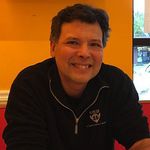
Kenji Harada and Jain met at the introduction of David Pool, then co-founder of Compuserve and board member. He met Jain as a founding member of FreeInternet, one of the largest internet service providers in the U.S. in the late 90s and 2000 with over 3 million subscribers nationally. Naveen was Chairman of the Board and investor. Chris reported to the board on occasion and was head of Asia Pacific operations for FreeInternet.
Harada recently published an article about Jain's career in a local weekly publication in which he was nominated and awarded the 2016 Asian Technology and Innovation Award. This collaboration inspired Naveen and Chris to jointly write this book. In addition to magazines and newspapers, Chris has been published previously by the the U.S. - Japan Foundation and National Conference of State Legislatures (NCSL).
He was Editor/ co-Publisher, and technology reporter for the Asia Pacific Economic Review for ten years in the 1990s. During this time, he reported and published landmark stories as a member of the first official U.S. trade mission after President Clinton normalized trade relations with Viet Nam, post war Cambodia, and the peace treaty negotiated between President Fidel Ramos, Speaker Jose De Venecia, Jr., and Islamic rebel leaders in Mindanao, Philippines. Harada also led technology company trade missions which included meetings with country Presidents and Ministers throughout the Asia Pacific region.
Collectively, Chris drove sales and new business development for mobile and Internet businesses such as Freei Networks Ltd. (FreeInternet.com, now NetZero; see NASDAQ: NZRO), Bluzinger LLC, Media Lead LLC, Media Portal Japan (Softbank/ Toshiba JV subsidiary), eOrbis/ Orbis Online, Handheld Games, and MZinger LLC. He is co-founder of three of these companies.
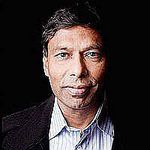
Naveen Jain became an Internet billionaire as founder of Infospace, Intellius, Talentwise, Moon Express, and BlueDot/ Viome. He is a contributing writer to Forbes Magazine, Wall Street Journal, Huffington Post, and INC. Magazine.
Naveen is an entrepreneur and philanthropist driven to solve the world’s biggest challenges through innovation. He is the founder of several successful companies including Moon Express, BlueDot, Intelius, Talent Wise and InfoSpace. He also served as Chairman of Freei Networks Ltd. (FreeInternet).
He has been awarded many honors for his entrepreneurial successes and leadership skills including “Ernst & Young Entrepreneur of the Year”, “Albert Einstein Technology Medal” for pioneers in technology, “Humanitarian Innovation Award” at the United Nations, “Distinguished Global Thinker Award” by IILM, “Most inspiring Entrepreneur” by Andaaz TV, “Most admired Serial Entrepreneur” by Silicon India, “Top 20 Entrepreneurs” and “Lifetime Achievement Award” for the leadership in the technology industry and support of other entrepreneurs by Red Herring.
Moon Express is the only company to have permission from the US government to leave earth orbit and land on the moon. It has developed a robotic lunar probe and lunar lander to harvest planetary resources on the moon for the benefit of humanity.
Naveen is a trustee of the board and vision circle member at the X PRIZE Foundation where he is focused on finding entrepreneurial solutions to address the global challenges in health, education, poverty, agriculture, and energy. He is on the board of Singularity University, an interdisciplinary university with the mission to educate and inspire leaders to address humanity’s grand challenges through innovative technologies.
500 copies • Partial manuscript • Looking for motivational, inspiration and the lighter side of business.
Sourcebooks is an independent vision. We are a company bound together by the idea that Books. Change. Lives. For us, it means a passion for books and a dedication to the belief that books change lives. It means innovative publishing, where every book is personal and every author’s voice has a place. And it means not being afraid to say “I don’t know” and forging a new path when we have to. We are a group of passionate, energetic and enthusiastic book lovers, and we are committed to helping readers experience each book. Thank you for being a part of our story.
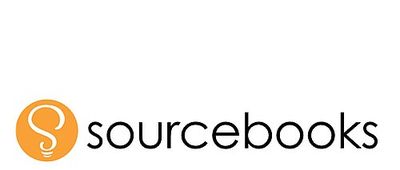
Agora Publishing is a Canada-based not-for-profit organization, founded in 1997 with the aim of making book publishing accessible to all writers across Canada and internationally.
We are the only hybrid book publisher which is also a cable TV show producer; newspaper publisher; social media marketer and search engine marketing organization.
Do you have a Twitter following of at least 5000?
We will interview eligible authors for 15 minutes for our cable TV show broadcast.
If your raw interview footage generates at least 1000 views within a four day period, we will air your interview on our cable TV show.
Contact us for more information.
Applications are due Saturday, May 29, 2021.
#authors #bookmarketing #writers #tv

250 copies • Partial manuscript.
Anaphora Literary Press was started in 2009 and publishes fiction, short stories, creative and non-fiction books. Anaphora has exhibited its titles at SIBA, ALA, SAMLA, and many other international conventions. Services include book trailers, press releases, merchandise design, book review (free in pdf/epub) submissions, proofreading, formatting, design, LCCN/ISBN assignment, international distribution, art creation, ebook (Kindle, EBSCO, ProQuest)/ softcover/ hardcover editions, and dozens of other components included in the basic package.

500 copies • Complete manuscript.
Blooming Twig is an award-winning boutique publishing house, media company, and thought leadership marketing agency. Based in New York City and Tulsa, we have represented and re-branded hundreds of thought leaders, published more than 400 titles in all genres, and built up a like-minded following for authors, speakers, trainers, and organizations with our bleeding-edge marketing strategies. Blooming Twig is about giving the people with something to say (“thought leaders”) a platform, walking its clients up to their own influencer pulpit, and making sure there is a like-minded crowd assembled to hear the meaningful message.

250 copies • Partial manuscript • Looking for business, entrepreneurship, personal development, success psychology and mindset, health, and lifestyle.
BrightFlame Books was set up with one key purpose: to help experts like you get your message out into the world, increase your impact, and ultimately, grow your business. Wherever you are in your publishing journey, we can support you. As a full-service publisher, we transform your draft manuscript into a beautifully finished book. Our editors edit and polish your words, then our creative team turns it into a professionally designed finished product, inside and out, that presents you as the thought leader and industry leader you are. Once your book is published, as a marketing consultancy we specialize in turning you into a bestselling author by orchestrating launch campaigns to drive sales and awareness of your book internationally and creating book-based lead generation and client acquisition campaigns that turn your book into a powerful business development tool.

500 copies • Completed manuscript.
Emerald Lake Books is a hybrid publishing company that provides a unique blend of business coaching with publishing to help its authors succeed, whether it’s their first book or their fiftieth! Emerald Lake Books specializes in working with positive people who have an engaging, exciting, or entertaining message to share with the world. Using a unique, goal-oriented approach to publishing, we combine our business and publishing knowledge to help our authors set and attain goals for their readers, their brands, and their books. And many of those books have gone on to win international awards and recognition.

Experts Press is committed to penetrating the market with top tier publications on business, sales, leadership, personal development, spirituality, health, wellness, and finance. Our authors are amongst the top experts in their respective industries and through our industry-leading support reach new heights with their book success.

250 copies • Completed manuscript.
Koehler Books is an Indie publisher based in Virginia Beach, Virginia. Our team of dedicated professionals promises you a holistic publishing experience where you'll receive our full attention, collaboration, and coaching every step of the way. We offer two publishing models: a traditional non-fee model for the highest quality work, as well as a co-publishing model that includes creative development fees for emerging authors. Our titles are broad-based and include nearly every major non-fiction and fiction genre.

Since 2002, Lulu has enabled more than 1 million authors in more than 225 countries and territories to self-publish nearly 2 million publications. Our industry-leading tools, worldwide print network and global community help authors hone their craft and publish printed books and eBooks for FREE. Offering the largest Indie bookstore at Lulu.com and distribution services, you can sell in online bookstores around the world. With Lulu, authors are in control, forever owning the rights to their works, setting their own price and keeping 80 percent of their book profits and 90 percent of eBook profits.
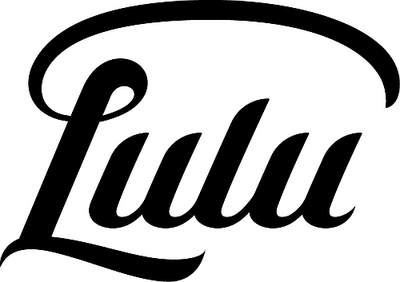
Mascot Books is a full-service hybrid publisher dedicated to helping authors at all stages of their publishing journey create a high-quality printed or digital book that matches their vision. With comprehensive editorial, design, marketing, production, and distribution services, our authors have the support of an experienced publishing team while still retaining one of the highest royalty percentages in the business.

The History
Prodigy Publishing Group was founded in 2009 and has been steadily publishing distinguishable trade paperback fiction since. Its flagship imprint Prodigy Gold Books is spearheading its journey with a fall 2017 line up that includes four novels by four authors sure to delight readers. Prodigy Gold Books is dedicated to publishing a variety of must-read books on a wide array of topics and genres.
The Mission
Our mission is to showcase established voices and to introduce emerging new ones—both fiction and nonfiction genres.

Dear Author,
You worked hard to write your manuscript, and you know that expert assistance is needed to ready it for the market. But perhaps you didn’t realize that working with a publisher is no longer necessary—especially publishers who charge fees to produce your book upfront and "share" more of your revenue whenever a book is sold.
1106 Design is an author services company that has served over 4,000 authors since 2001. We offer all the editorial and design services you’d expect from a publisher, transforming your manuscript into a polished book. But here's the difference: we help you secure print-on-demand printing and worldwide distribution in YOUR name. This means you'll earn several dollars more for every book sold instead of a meager “royalty” and never lose control of your book or your book files.
We understand that your book is not just a passion project but also a potential source of income. No two books or authors are alike. That's why we'll customize a package of services tailored to your needs at affordable prices, starting at $5,555. And here's the best part: after this one-time investment, every penny of revenue from book sales is deposited directly to your bank account, never to ours first.
If this sounds like a better way to publish your book, I invite you to browse our services, design samples, no-surprises pricing, outstanding customer reviews, and educational articles at https://1106design.com. You can download a free PDF of my book, "Publish Like the Pros: A Brief Guide to Quality Self-Publishing and an Insider's Look at a Misunderstood Industry," and request a free, no-obligation consultation.
1106 Design is rated A+ by the Better Business Bureau. We are a “Highly Recommended Expert” at IngramSpark.com and rated "Excellent" at Alli, The Alliance for Independent Authors, at SelfPublishingAdvice.org. Alli's "watchdog list" of the best and worst publishing services companies is an invaluable resource.
How can we serve you today?
Sincerely,
Michele DeFilippo, owner

250 copies • Partial manuscript.
Atmosphere Press is an independent publisher dedicated to author rights. We publish in all genres and have an exceptional editorial, design, and promotional staff. We stand for Honesty, Transparency, Professionalism, and Kindness. We want our authors and their readers to be blown away when they first hold that book in their hands. It needs to look good inside and out, and feel good to the touch. And, of course, the words need to be top-notch, and our editors are devoted to making that the case.
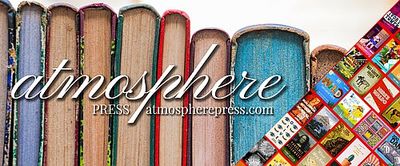
250 copies • Partial manuscript.
Authors Unite helps you become a profitable author and make an impact. We take care of printing and distribution through major online retailers, developmental editing, and proofreading with unlimited revisions. We take care of the entire process for you from book cover design all the way to set up your backend so all your book royalties go straight to your bank account. We can also help with ghostwriting if you prefer not to have to figure out all the steps on how to write a book yourself.
With our book marketing services, you don’t need to worry about figuring out all the steps on how to market a book or how to become a bestselling author. We’ve helped hundreds of authors become bestselling authors on Amazon, USA Today, and The Wall Street Journal. We take care of the entire book launch process for you to help you sell thousands of copies of your book and become a bestselling author.
View case studies here: https://authorsunite.com

100 copies • Partial manuscript.
Bookmobile provides book printing, graphic design, and other resources to support book publishers in an ever-changing environment. Superior quality, excellent customer service, flexibility, and timely turnarounds have attracted nearly 1,000 satisfied clients to Bookmobile, including trade houses, university presses, independent publishers, museums, galleries, artists, and more. In addition, we manage eBook conversions and produce galleys, and regularly provide short-run reprints of 750 copies or fewer for major publishers such as Graywolf Press.

100 copies • Completed manuscript.
Happy Self Publishing has helped 500+ authors to get their books self-published, hit the #1 position in the Amazon bestseller charts, and also establish their author website & brand to grow their business. And the best thing is, we do all this without taking away your rights and royalties. Let's schedule a call to discuss the next steps in your book project: www.meetme.so/jyotsnaramachandran
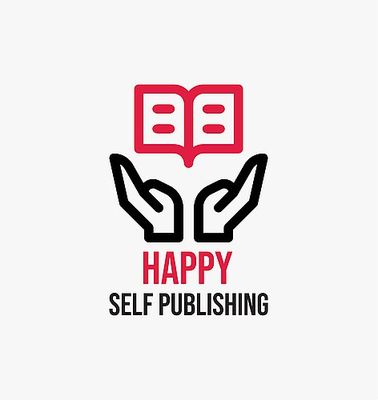
100 copies • Completed manuscript.
Jetlaunch book design and project management services give you back the hours you need to grow your publishing business. We've done work for John Lee Dumas, Ed Mylett, Rachel Pedersen, Dan Sullivan, Aaron Walker, Amy Landino (Schmittauer), Kary Oberbrunner, Jim Edwards, and many publishing companies. You retain all rights and royalties.

Get your ebooks into the biggest stores and keep the 100% of your royalties. Amazon, Apple iBooks, Google Play, Kobo, Nook by Barnes & Noble and more.
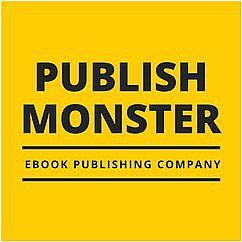
Virtualbookworm (VBW) Publishing was founded by a writer frustrated by the long wait time and occasional heartbreak often associated with the publishing industry. After researching the various "alternatives," he discovered a number of subsidy publishers that would publish any author ... for a price. Unfortunately, many reviewers (and readers) thumb their noses at books from such houses, since all it takes is cash to get published by them.
Then he discovered self publishing and the endless opportunities it presented. However, such a venture requires countless hours of research of printers, proofreaders, artists, etc. And after publication, even more time is consumed trying to market the book.
So, Virtualbookworm.com was established as a "clearinghouse" for authors, since it offers virtually everything under one roof. Although we now charge setup and design fees, those costs are kept to a minimum so as to cover all expenses. And, as with "traditional" publishers, we carefully review each manuscript and only offer contracts to authors who truly have exceptional manuscripts. We don't print garbage, and we want our authors to proudly say they were published by Virtualbookworm. If we accept your book for publication, you can rest assured that it will be sold next to other quality books, and not just work that had enough money behind it. And, you'll receive some of the best royalties in the business!
Since our initial costs are so low, we want your books to sell as much as you do.
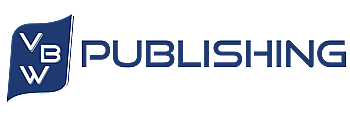
At Xlibris, we provide authors with a supported self-publishing solution from our comprehensive range of publishing packages and associated services. Publish and distribute your book to a global audience in classic black & white, dazzling full-color, paperback, hardback, or custom leather bound formats, plus all digital formats.

One of Naveen Jain’s “Moonshot” goals is to “make illness truly optional.” Jain likes to say, “I think like the future has already arrived. Health care was originally designed to address infectious diseases”. Today, “90% of healthcare costs are going toward chronic diseases”, the focus for Jain is on solving the problems of diseases.
“As a system becomes large,” he says, “it becomes an organism set up to survive; it believes that only the stakeholders of the system matter – the hospitals, pharmaceutical companies, and insurance companies – and the customers are just a nuisance the system has to deal with in order to get paid, just to collect money. People are just a cog in a wheel that they need to go through so everyone can make money. That is why the system is completely broken at this point.”
“Pharmaceutical companies have become a parasite of humanity. Their purpose is to keep you sick. When you have a chronic disease and you have a CEO of a pharmaceutical company who says that ‘the best drug we develop is the one that people must take for the rest of their life.’ The best drug is not the one that cures the disease, the best drugs are the ones that suppress the symptom so that you must take it for the rest of your life. That kind of system is essentially using people as guinea pigs to keep making money from us.”
“Every doctor, every student who graduates from medical school today believes that we are healthier if we are able to get rid of bacteria and virus from our body. What they don't realize is, we are mostly a microbial society. We are a walking talking climate. We are an ecosystem in ourselves.”
“I am not a doctor but I can tell you that the things that I've learned are absolutely mind boggling. We look at ourselves as humans and the number of genes that are expressed by the human DNA are about 20,000 genes. The microbes in our gut produce about two million to ten million genes. Think about that for a second. We are less than 1% human. We are 99% microbial. Every single time that you look at who we are, we are our microbiome. Our microbiome controls who we are.”
The Viome website says this about individual uniqueness, “you have 20,000 genes. Your 40 trillion friends have 800,000 genes! How unique are you? You have 99% DNA commonality, but you have only 5% Microbiome commonality. You and your 40 trillion microbial friends deserve personalized nutrition!”
“Entrepreneur-izing” Healthcare.
Advancements in healthcare are rapidly moving the way of the entrepreneur and innovative startups. In Jain’s case, he created a company, BlueDot, based in Bellevue, Washington, to “unlock valuable inventions by “re-imagining research from top labs in order to solve humanity’s most pressing global challenges”. Viome was formed by BlueDot by applying entrepreneurial skills to create cutting-edge technology derived from the research of organizations such as Los Alamos Laboratory in New Mexico and other national labs and universities”. BlueDot seeks to solve the “world’s greatest challenges. “You have access to healthcare for billions of people through innovations in entrepreneurship,” adds Jain.
Viome is the first of perhaps many spin offs of BlueDot. Viome acquired and further developed the Ai (artificial intelligence) and technology (licensed from Los Alamos Laboratory) and deep learning capability to “identify and quantify all living organisms (bacteria, viruses, yeast, fungus & mold). More importantly, the Ai is able to “look at their functional pathways to analyze what they are actually doing,” adds Jain. Viome uses this information to make arguably the most informed recommendations available to customers about their health.
To give credit where credit is due, “healthcare does well at what it is designed to do, which is to cure some infections, diseases,” and obtain short-term treatment for urgent, emergency medical conditions. But Jain asks, “what if sickness was a matter of choice, not a matter of misfortune? What we learned (at Viome) is that everything related to chronic disease is formed in the gut.”
Our body in its natural state, mimics the patterns and structure of Nature. “Nature in humans has its own (bacteria) ecosystem.”
Health care is one of the key global challenges facing us today.
Mind- Body Connection.
What Jain and his company Viome is doing is validating what is traditionally an “eastern medicine” approach to healthcare. We can no longer assume the traditional western belief that the brain and body are independently functioning parts of the body, as highlighted as far back as the 17th Century by Rene Descartes which became known as the “Cartesian duality” of mind and body. Not only do we know they are intimately interconnected, but they are immersively interdependent, constantly communicating, and often working collaboratively.
The holistic approach to wellness that has prevailed for centuries in Asia is now being pursued by the scientific communities in the U.S. and elsewhere. Imagine now the intellectual revolutions taking place in healthcare. The scientific communities are delving deeper into research on the connection of the mind and body. Where in principle Asian health care has fostered a holistic approach toward the mind and the body, today modern science is making scientific connections and applications between them never before pursued, reinforcing that holistic approach. Not limited to Asia, western non-scientific traditions have also maintained a fascination on the periphery of mind-body science with dysbiosis, intestinal putrefaction, and auto intoxication, for example. However, these principles were not accepted by the scientific communities of their time.
Today, we know that every major organ in the body from the heart to the stomach and liver combine to possess hundreds of millions of neurons with corresponding DNA, collectively referred to as the “enteric nervous system, all of which are constantly communicating with the brain”.
Eastern Medicine.
It may not be a coincidence that the founder and CEO of Viome, Naveen Jain, comes from an Indian culture with a 5,000 year old holistic health tradition, Ayurveda. According to Ayurveda, disease develops when we disconnect from nature and the five elements in nature and within our minds and bodies - earth, water, fire, air, and space. Ayurveda seeks to integrate the mind, body and spirit to promote health and wellness, as stated by the the National Institute of Health. Likewise, Japanese health care evolving from the Shinto and Buddhist traditions seek to factor in our connection to nature with our physical and spiritual health, such as “Shinrinyoku”, or “bathing in the forest”, and healthcare coverage for naturopathic medicine and acupuncture, for example. The Ayurvedic approach considers each individual’s unique needs for food and application, even lifestyle. The practice also analyzes a person’s “dosha” or body - mind type.
How does this apply to our own personal health? For one, it parallels Viome’s scientifically based approach to support healthy living. It supports the belief that the fundamentals of even meditation are factors influencing our overall health, such as slowing down, being present, mindful, and conscious in our breathing. Moreover, it reinforces Viome’s analysis of the mind- body connections as an effective tool for addressing one’s health.
Naveen Jain’s company Viome is not in any way associated with the Ayurvedic or any other health care tradition of Asia and makes no such claim, but the point here is that much of what the modern scientific communities are now validating has been smeared as “quack science/ medicine” in their times. Eastern medicine tradition parallels Viome’s scientific approach to healthcare.
Viome offers hard science and technology that may have been lacking previously by using the technology developed at the Los Alamos Laboratory. It is able to make pinpoint accurate healthcare recommendations for customers, using data driven Ai, and a scientifically based analysis of an individual’s gut content.
“Gut Check - Microbiomes Intimate Role in Health”
Jain takes us into a deeper understanding of the role of microbiomes to our health. “Every single chronic disease that we know of -- from Parkinson’s, Alzheimer’s, autism, depression, anxiety, obesity, autoimmune diseases, cancer-- every single one of these diseases have one thing in common, chronic inflammation. Every one of them is caused by microbiome. Think about this. Every one of these diseases is caused by microbiomes. And every time we take antibiotics we are killing those microbiomes.”
“A lot of people are saying ‘I know about microbiomes, what is so unique about it?’ The change in the last twelve months is we not only know what is inside our gut, we are able to know exactly what they are doing.”
“The latest wave (of Microbiome testing) is transcriptome. The transcriptome testing approach looks at the RNA and analyzes what the RNA of microbiomes are doing. The popular ‘16S sequencing’ of microbiomes testing is a twenty year old technology and is not able to do this.”
“What if you can find out exactly what is going on (inside the RNA of microbiomes)? What if you know what vitamins they are producing? What if you knew which specific compounds they are producing that cause inflammation? And from this data, what if you were able to figure out which specific content and combinations of food can actually address these inflammations more effectively than any prescription drugs we have available today?”
What if? And what if our current understanding of microbiomes is not ‘what if’, but ‘what is’? Because today, our understanding of healthcare has gone full circle to the conclusion that “there is no such thing as a universal healthy diet.” There is no universal healthcare solution, since every person is different down to the molecular level. Jain adds, “a diet that’s good for you, is not good for me. A diet that's good for me now won't be good for me three months from now because our microbiomes are constantly changing,” he says. “Our microbiomes to some extent controls our brain through the way they are constantly communicating with it back and forth. In fact, these bugs in our gut are like a puppet master. They tell our brain when we are hungry, they tell us what we crave. So when you crave chocolate, don't blame your brain, blame your microbiomes.”
“The interesting thing is they communicate with the micro RNA in your brain in the amygdala and prefrontal cortex. That means they (contribute to) controlling our emotional behavior and they control our decision making. They in fact modify the genetic expression of our human genes. That means it's not even what our DNA tells us. Our DNA is simply a potential of what could happen. Our genetic expression tells you actually what is happening and these guys (microbiomes) control what is actually being expressed.”
“It's really to some extent what Hypocrates stated, ‘all diseases start in the gut.’ That was two thousand years ago. ‘One man's food is another man's poison. And that is true today.’ So when your mother says to you ‘listen to your gut; do your gut check.’ That is the best science advice you can get. She knows what she is talking about.”
“Climate Change (in the body).”
“We are coming to realize that our human body has its own internal climate. Any time you change anything in that climate, everything will be impacted.”
Because of Viome’s research and new microbial discoveries around the world, our whole idea about the brain and brain research is changing. The way we view the brain and brain research has completely flipped on its head since a few decades ago when scientists first discovered that “messenger molecules” for the brain were circulating throughout the body in the bloodstream. None are more pervasive than what scientists have found in the activities of microbiomes in the gut. “Every cell is eavesdropping on the brain’s activity, sending and receiving messages identical to those that the brain processes,” says Deepak Chopra in his recent Huffington Post article “Will the Gut-Brain Connection Revolutionize Wellness?” (September 11, 2017; see http://www.huffingtonpost.com/entry/will-the-gut-brain-connection-revolutionize-wellness_us_59b6b598e4b0e4419674c375). In this article, Chopra and contributing author Naveen Jain go so far as to say that all the common experiences we have are indicators of the brain’s connection to the gut -- “getting butterflies in your stomach when you feel nervous, overeating when you feel anxious, feeling dull and sluggish after taking an antibiotic, contracting stomach cramps before a competitive challenge, experiencing nausea or stomach upset from taking antidepressants.” In fact, every major organ in the body from the heart to the stomach and liver combine to possess hundreds of millions of neurons with corresponding DNA, collectively referred to as the aforementioned “enteric nervous system”.
Microbiomes- Producer of ‘Messenger Molecules’ (Neurotransmitters).
When Naveen Jain launched BlueDot to “tackle society’s big issues, such as curing diseases and clean energy solutions”, his attention rapidly honed in on healthcare. It can be described as his “earthshot” that counterbalances Jain’s “moonshot”. Perhaps, it was intended this way to keep Jain’s life journey and space journey firmly in balance. His first spin off from BlueDot, Viome offers “personalized, customer-centric health care at the gut level”.
“The bacteria inside our guts, microbiomes, include unlimited numbers of species and strains. They differ from person to person with limited or no relationship from person to person. They are known to be ‘messenger molecules’ associated with the brain that circulate throughout the body in the bloodstream. They even produce neurotransmitters. Neurotransmitters are the chemicals our brain uses to communicate with the rest of the body.”
As mentioned, Viome was born at the prestigious Los Alamos National Laboratory, which licensed technology that was designed for national security. “Every disease starts in the gut. This (Viome) technology came out of Los Alamos Laboratory where the United States spent hundreds of millions of dollars developing (the technology) for the biodefense war. They wanted to know that if some bad actor were to get a hold of some biological (weapon), we would need to know what would be making us sick?”
“The technology is able to look at every single thing that's happening in the body. What genes are being expressed by your mitochondria? What genes are being expressed by your blood? What genes are being expressed by your microbiome? And it looks at all of that with artificial intelligence and tells you exactly what food to eat and what food to avoid.”
From a small stool sample, Viome is able to do this. It is able to perform a complete sequencing and identify the strain and genetics expression of a person’s entire microbiome content. This includes all the person’s bacteria, viruses, bacteriophages, archaea, fungi, yeast, and parasites, and the range of chemicals, or metabolites they create. The metabolites these microbiomes create are important to one’s health because they can produce healthy B vitamins, for example, or they can produce cancer causing agents. No other company can claim this breadth of data.
“Every cell is eavesdropping on the brain’s activity, sending and receiving messages identical to those that the brain processes,” adds Jain. In fact, 90% of the well known serotonin neurotransmitter is made in the body’s digestive tract, according to a 2015 report by CalTech (April 09, 2015, “Microbes Help Produce Serotonin in Gut”, http://m.caltech.edu/news/microbes-help-produce-serotonin-gut-46495).
Research going into the influence of gut microbiomes on everything from autism, multiple sclerosis, and brain health to cancer, diseases such as cardiovascular disease, osteoporosis, diabetes and weight loss have become widespread as major research institutions and universities are conducting studies on the subject.
"More and more studies are showing that mice or other model organisms with changes in their gut microbes exhibit altered behaviors," explains Elaine Hsiao, CalTech research assistant professor of biology and biological engineering. Hsao is quoted here from the CalTech journal Cell, April 09, 2015 issue.
"Serotonin is an important neurotransmitter and hormone that is involved in a variety of biological processes. The finding that gut microbes modulate serotonin levels raises the interesting prospect of using them to drive changes in biology," says Hsiao in the Journal.
Researchers are constantly learning more and more how bacteria keep us healthy, and what bacterial changes make us prone to disease, and which diseases. In the future, research could lead us to treat diseases by harnessing and stimulating the activities of more and more naturally occurring microbes.
“We knew that bugs make molecules that enable them to communicate,” adds Hsiao.
Scientists have found that differences in a person’s gut can be a clue to our specific health propensities, but also something as immediate as our daily mood and behaviors.
For example, though they differ from one to another, a person with diabetes is more likely to have a certain suite of microbes than a person without diabetes. A recent Popular Science article (“Scientists want to turn our gut bacteria into medicine”, August 31, 2017 by Claire Maldarelli) refers to this connection of gut microbiomes and diabetes.
“100 Trillion Bacteria!”
The gut microbiome is a vast ecosystem of organisms such as bacteria, yeasts, fungi, viruses and protozoans that live in our digestive pipes, which collectively weigh up to 2kg (heavier than the average brain), according to Amy Fleming in her article on gut microbiome and happiness that was published in The Guardian (see “Is your gut microbiome the key to health and happiness?” by Amy Fleming, November 06, 2017; https://www.theguardian.com/lifeandstyle/2017/nov/06/microbiome-gut-health-digestive-system-genes-happiness). It is increasingly treated by scientists as an organ. Each gut contains about 100 trillion bacteria, many of which are vital, breaking down food and toxins, making vitamins and training our immune systems. The hope, says Fleming who quotes neuroscientist John Cryan, “is that it may one day be possible to diagnose some brain diseases and mental health problems by analysing gut bacteria, and to treat them – or at least augment the effects of drug treatments – with specific bacteria.” Cryan and his colleague Ted Dinan at the APC Microbiome Institute call these mood-altering germs “psychobiotics”, and have co-written a book with the American science writer Scott C Anderson called The Psychobiotic Revolution.
An earlier article in The Guardian, “Gut bacteria regulate nerve fibre insulation” (by Mo Costandi, April 05, 2016 issue) claims that “alterations in our gut bacteria composition may be connected to a wide range of neurological and psychiatric conditions, including Multiple Sclerosis (MS), autism, chronic pain, depression, and Parkinson’s Disease.” The same is true of PTSD. Psychosomatic Medicine reported that “various factors play a role (in PTSD), including a lack of social support and low levels of the neurotransmitter neuropeptide Y (see British Psychological Society blog, November 22, 2017; https://www.bps.org.uk/news-and-policy/bacteria-your-gut-might-affect-your-vulnerability-ptsd).
Miracle “bugs” for MS and Autism patients.
Getting down to specifics, another study identified a connection between bacterial strains Akkermansia muciniphila and Acinetobacter calcoaceticus, and multiple sclerosis. The study by University of California San Francisco (UCSF) found a connection between gut the aforementioned microbiomes and neuron-degeneration characterized by MS (see September 11, 2017 Online Edition of Proceedings of the National Academy of Sciences (PNAS)). In the study, postdoctoral UCSF researcher Egle Cekanaviciute, PhD, and collaborators found specific species of bacteria in the gut among 71 MS patients they analyzed that were not present in 71 healthy control subjects. The study found that Akkermansia muciniphila and Acinetobacter calcoaceticus— triggered human immune cells to become pro-inflammatory, while another found at lower than usual levels in MS patients — Parabacteroides distasonis— triggered immune-regulatory responses. Sergio Baranzini, PhD, a professor of neurology at UCSF added in the article that “twins only share an MS diagnosis about 35 percent of the time."
This demonstrates concrete evidence associating the role of microbiomes and MS. Baranzini and Cekanaviciute’s research took the research a step to the next level. It identified the effects of specific microbiomes - the increased presence of ones that cause harmful effects versus the decreased presence of ones that are helpful - how they actually impact human health. With this knowledge, scientists have the tools now to potentially cure degenerative diseases like MS for the first time!
In other research on mice done jointly by MIT and the University of Massachusetts Medical School, researchers found that the gut microbiome composition of the mother’s gut can influence whether maternal infection leads to autistic-like behaviors in offspring. They also discovered the specific brain changes that produce these behaviors. In a 2016 Science paper, Dr. Gloria Choi and her husband Dr. Jun Huh found that types of immune cells known as Th17 cells, and their effector molecule, called IL-17, are responsible for this effect in mice. IL-17 then interacts with receptors found on brain cells in the developing fetus, leading to irregularities that the researchers call “patches” in certain parts of the cortex known as the somatosensory cortex. When the researchers restored normal levels of brain activity in this area of the brain, they were able to reverse the behavioral abnormalities. They were also able to induce the behaviors in otherwise normal mice by over stimulating neurons in the somatosensory cortex.
The same MIT report also referred to a 2010 study that included all children born in Denmark between 1980 and 2005 which found that severe viral infections during the first trimester of their mother’s pregnancy led to risk for autism by three times.
Gut research is also finding incredible breakthroughs in understanding cancer and discovering remedies for cancer. In a September 06, 2017 article covering the International Cancer Immunotherapy Conference: Translating Science into Survival (held September 6-9, 2017), Dr. G. Lezzi at the University of Basel, Switzerland, found that certain gut bacteria promotes the presence of certain immune system T-cells in a colon cancer tumor which prolongs survival in patients.
A “Tsunami” of Ai is Coming to Health Care.
The breadth of research described above represent mere samples of the research being conducted all over the world on microbiomes and health.
Behind that “return to our roots” health care grounded in the food we eat, is layered on top, like “icing on the cake”, the innovative Ai and medical technology from U.S. Los Alamos Laboratory in New Mexico that leads the way to transforming an industry that has been entrenched in pharmaceutical drugs for decades. The industry is now steeped in controversy with limited results, and lots of damaging side effects such as the opioid epidemic affecting millions of lives in America.
For Naveen Jain, this all just means more problem solving, and more opportunity. Taking on the powerful health care industry, the pharmaceutical industry, the insurance industry, is nothing short of bold and “gutsy”.
Jain believes there is a big wave of Ai coming into the health sector. “This is a tsunami that's coming," he told CNBC in a TV interview from the Slush Technology Conference in Helsinki, Finland (December 01, 2017). Jain partly attributes this trend to the huge demand for sensors that are driving down the prices, making Ai technology available to the masses. "The sensors are becoming so cheap. For the first time in our lifetime, we can look deep inside our body to know exactly what is going on," he told CNBC. Jain believes food could become the "next drug," reducing the need for traditional medicine.
What Jain and his team at Viome is discovering using Ai is deeper and more detailed understanding of the mind and body. "AI is going to play the biggest role because there is so much data that no humans can ever process," he said.
“We treat our body like a black box and that is the reason I started this company called Viome.” The brain- gut connection will be increasingly reinforced by the revolutionary transforming role of Ai in health care, says Jain in his December 01, 2017 interview with CNBC (see “A tsunami coming into healthcare, tech CEO says”, (https://www.cnbc.com/2017/12/01/tsunami-of-a-i-coming-into-healthcare-tech-ceo-says.html).
Viome- Personalized, Customer-Centric Health Care
Beyond what we’ve learned to date, what else does all this cutting edge research on the brain- to- gut connection mean? It not only suggests a deep interconnection between the bacteria in our body to our brain, but it also opens health care to almost unlimited opportunities for answers and solutions to today’s health care problems. Naveen Jain asks, “our health is very personal, and very individually unique, so why is healthcare not applied at a personal, customer- centric, individual level?”
“Viome is also able to identify ‘relationships’ among species and strains of bacteria, viruses, bacteriophages, fungi, and parasites, how they interact with each other within the human body. Viome offers actionable solutions from the “highly personalized biochemical analysis that maximize each individual’s health.” As mentioned, “Viome is able to identify/quantify all these living organisms (bacteria, viruses, yeast, fungus & mold) and more importantly, look at their functionality and analyze what they are actually doing.”
This all points toward Jain’s assertion that the large institutional systems currently in place, from healthcare to education, may be becoming obsolete (see chapter “Entrepreneurial Philanthropy”). Advancements in healthcare are rapidly moving the way of the entrepreneur and innovative startups.
Jain’s Viome now pushes healthcare solutions into the technology realm of deep learning and Ai that will streamline healthcare into a neural and biological network down to the fully personal, customizable molecular level.
Defining Success for Yourself
In this chapter, Naveen Jain offers these words of advice for aspiring entrepreneurs. You may call it Jain’s “Field Guide for Entrepreneurs”. He begins with defining success in our own lives.
“Success, of course, is very personal; there is no universal way of measuring success, says Jain. “What do successful people like Bill Gates and Mother Teresa have in common? On the surface it’s hard to find anything they share—and yet both are successful. The real metric of success isn’t the size of your bank account. It’s the number of lives on whom you make a positive difference. This is the measure of success we need to apply while we are on our life journey to success.”
“The meaning of life is to find your natural gift. But the purpose of life is to share that gift with the rest of the world. So one part of success is to find out what is your natural gift, and then share it with the rest of the world. The question you may ask yourself is: How do we measure success? People often mistake financial gain as the way of measuring success. Making money is only one byproduct of doing what you really love. It is never the only goal.”
Jain ponders the possibilities if he had not emigrated to the U.S. “In India, would I have had the same success (as he has in the U.S.)?” Just like other entrepreneurs who come to America, would he have had the same success as in his home country? Jain suggests that in India, “I may have had no success. I’d be just another Indian village boy. Our environment shapes us. People around us shape us. This is why it is so important to surround yourself with good people, aspiring people, learning people. Expose yourself to opportunities.”
For America, immigration has been our way of ingesting global ideas and concepts and incorporating them for our own use in society. It is true there is an ebb and flow even to our acceptance of international influences and ideas. Today is a temporary time of closing up, maybe a time where our nation feels overwhelmed by foreign influences. We are fueled by fear and inaccurate information about foreign threats. However, the political climate does not influence the constant flow of ideas and innovations across borders no matter how much we may try to restrict them, especially in this information age.
The rapid transformation of all business, economic, and social sectors require personal, individual transformation, and it is continuously evolving. It never stops evolving. The paradigms will never cease shifting, sometimes more noticeably than at other times.
Entrepreneurs of Our Own Lives
Each of us must experience and create our own individual paradigm shifts; shifts in our thinking, shifts in how we approach life. We must become our own “dynamic organization”, “dynamic organism” if you will, able to ingest, process, analyze, learn, adapt, and problem solve within our own respective environments. If we live life this way, nothing will be too much, nothing will be overwhelming. We must become entrepreneurs of our own lives, says Jain.
“Every entrepreneur has to be agile in order to perform. You have to continually learn and adapt as new information becomes available. At the same time you have to remain persistent to the cause and mission of your enterprise. That’s where that faint voice becomes so important, especially when it is giving you early warning signals that things are going off-track. Successful entrepreneurs find the balance between listening to that voice and staying persistent in driving for success—because sometimes success is waiting right across the transitional bump that’s disguised as failure.”
“Behind every overnight success lies years of hard work and sweat. People with luck will tell you there’s no easy way to achieve success—and that luck comes to those who work hard. “Successful entrepreneurs always give 100% of their efforts to everything they do. It doesn’t matter how smart you are. There is no substitute for hard work. If you know you are giving your best effort, you’ll never have any reason for regrets. Focus on things you can control; stay focused on your efforts and let the results be what they will be. Allow for yourself to take risks and fail along the way. Failing is a pathway to your success. Dream big and never be afraid to fail. Every idea that doesn’t work is a stepping stone greater success.”
Life is a Teacher Trust Your Gut
We hear of constant displacements and a constantly overwhelmed populace over the dynamic shifts in society. Within this rapidly changing world, there is only one necessity for each individual - - Jain says, “be who you are”. Participate in the change where it fits for you, even where it fits for no one else. Understand and learn the big picture, but don’t get caught up in it. “Be your own individual”, as Jain says.
“Even high level decision making requires more than spreadsheets and PowerPoints. Ultimately, trust your gut instinct. There are too many variables in the real world that you simply can’t put into a spreadsheet. Spreadsheets spit out results from your inexact assumptions and give you a false sense of security. In most cases, your heart and gut are still your best guide.”
“The human brain works as a binary computer and can only analyze the exact information-based zeros and ones (or black and white). Our heart is more like a chemical computer that uses fuzzy logic to analyze information that can’t be easily defined in zeros and ones. We’ve all had experiences in business where our heart told us something was wrong while our brain was still trying to use logic to figure it all out. Sometimes a faint voice based on instinct resonates far more strongly than overpowering logic.”
This also means there are no final answers, there is no room for black and white thinking, right and wrong thinking; there is no ultimate perfection, no final destination. “Life itself is a teacher”, adds Jain. “When you stop learning, life stops teaching”.
“Everyone will teach you to focus on goals, but successful people focus on the journey and celebrate the milestones along the way. Is it worth spending a large part of your life trying to reach the destination if you didn't enjoy the journey along the way? Won’t the team you attract to join you on your mission also enjoy the journey more as well? Wouldn’t it be better for all of you to have the time of your life during the journey, even if the destination is never reached?”
In the Trenches
“Unless you are the smartest person on earth (and who is) it’s likely that many others have thought about doing the same thing you’re trying to do. Success doesn’t necessarily come from breakthrough innovation but from flawless execution. A great strategy alone won’t win a game or a battle; the win comes from basic blocking and tackling. Battles are won in the trenches.”
“Great entrepreneurs focus intensely on an opportunity where others see nothing. This focus and intensity helps to eliminate wasted effort and distractions. As an entrepreneur, you must be passionate about what you are trying to achieve. That means you’re willing to sacrifice a large part of your waking hours to the idea you’ve come up with. Passion will ignite the same intensity in the others who join you as you build a team to succeed in this endeavor. With passion, both your team and your potential customers are more likely to truly believe in what you are trying to do.”
“We are living in a time of rapid change where every business, every social sector is being disrupted by new and innovative technology,” says Jain. To give a few of many commonly referenced examples, Uber is disrupting the transportation business, Amazon is disrupting the retail industry, Facebook is disrupting the content and social media sectors, AirBnb is disrupting the hotel industry, Zillow is disrupting the real estate sector, and BitCoin and Ethereum are disrupting the financial sector.
“There is very little talk about Superpowers today, except in the context of entrepreneurs. Entrepreneurs are solving the problems that used to be solved by governments.” While governments will not disappear but will continue to play their role, they must evolve and adapt with the continuously changing society and economy, and be ever prepared to step aside and let the private sector engines drive the work they may have started.
Naveen Jain’s Top Ten Lessons for The Entrepreneur
Jain has been an entrepreneur most of his adult life. Recently, on a long business flight, he began thinking about what it takes to become successful as an entrepreneur-- “how I would even define the meaning ‘success’ itself.”
“The two ideas became more intertwined in my thinking: success as an entrepreneur, entrepreneurial success. I've given a lot of talks over the years on the subject of entrepreneurship. The first thing I find I have to do is to dispel the persistent myth that entrepreneurial success is all about innovative thinking and breakthrough ideas.”
“I've found that entrepreneurial success usually comes through great execution, simply by doing a superior job of doing the blocking and tackling.”
But what else does it take to succeed as an entrepreneur-- and how should an entrepreneur define success? Jain came up with key pieces to maximizing an entrepreneur to succeed in their business venture. He offers these top ten lessons:
10. “Be passionate about what you are trying to achieve.”
When he was in college and in his early professional life, he pondered about what are valuable lessons for entrepreneurs. Passion came to mind for Jain.
“One of them was passion. We have a lot of distractions in life, but there is something that is really important to us. We spend our waking hours, and our sleeping time thinking about that one particular thing. Once you find your passion, you find that it is no longer work. It becomes your life. It consumes you. So find something that you are really really excited about and devote your life to it.”
“You must be passionate about what you are trying to achieve. That means you’re willing to sacrifice a large part of your waking hours to the idea you’ve come up with. Passion will ignite the same intensity in others who join you as you build a team to succeed in this endeavor. And with passion, both your team and your customers are more likely to truly believe in what you are trying to do.”
9. “Focus.”
“Great entrepreneurs focus intensely on an opportunity where others see nothing. This focus and intensity helps to eliminate wasted effort and distractions. Most companies die from indigestion rather than starvation i.e. companies suffer from doing too many things at the same time rather than doing too few things very well. Stay focused on the mission.”
8. “Success only comes from hard work.”
“We all know that there is no such thing as overnight success. Behind every overnight success lies years of hard work and sweat. People with luck will tell you there’s no easy way to achieve success— and that luck comes to those who work hard. Successful entrepreneurs always give 100% of their efforts to everything they do. If you know you are giving your best effort, you’ll never have any reason for regrets. Focus on things you can control; stay focused on your efforts and let the results be what they will be. Let go of the outcome.”
7. “Enjoy the journey—because the road to success is a long one.” “Everyone will teach you to focus on goals, but successful people focus on the journey and celebrate the milestones along the way. Is it worth spending a large part of your life trying to reach the destination if you didn't enjoy the journey along the way? Won’t the team you attract to join you on your mission also enjoy the journey more as well? Wouldn’t it be better for all of you to have the time of your life during the journey, even if the destination is never reached?”
6. “Trust your gut instinct over spreadsheets.”
There are too many variables in the real world that you simply can’t put into a spreadsheet. It is not about the spreadsheet; it’s not about the numbers. It is about what you feel in your heart. Spreadsheets spit out results from your inexact assumptions and give you a false sense of security. In most cases, your heart and gut are still your best guide. The human brain works as a binary computer and can only analyze the exact information-based zeros and ones (or black and white). Our heart is more like a chemical computer that uses fuzzy logic to analyze information that can’t be easily defined in zeros and ones. We’ve all had experiences in business where our heart told us something was wrong while our brain was still trying to use logic to figure it all out. Sometimes a faint voice based on instinct resonates far more strongly than overpowering logic.
5. “Be flexible but persistent.”
“Your business plan is only your guideline, not your road map. Every entrepreneur has to be agile in order to perform. You have to continually learn and adapt as new information becomes available. At the same time you have to remain persistent to the cause and mission of your enterprise. That’s where that faint voice becomes so important, especially when it is giving you early warning signals that things are going off-track. Successful entrepreneurs find the balance between listening to that voice and staying persistent in driving for success—because sometimes success is waiting right across from that transitional bump disguised as failure.”
4. “Rely on your team.”
“It’s a simple fact that no individual can be good at everything. Everyone needs people around them who have complimentary sets of skills. Entrepreneurs are an optimistic bunch of people and it’s very hard for them to believe that they are not good at certain things. Know what your core strengths are. It takes a lot of soul searching to find your own core skills and strengths. After that, find the smartest people you can who compliment your strengths. We tend to find people who are like us. It’s easy to become attracted to people who are like you; the trick is to find people who are not like you but who are good at what they do— and good at what you can’t do.”
“You don’t have to build a better mousetrap. You just need to build a different mouse trap. And It does not necessarily need to be the best mouse trap, which brings us to execution.”
3. “Execution, execution, execution.”
“Unless you are the smartest person on earth (and who is), it is likely that many others have thought about doing the same thing you’re trying to do. Success doesn’t necessarily come from breakthrough innovation but from flawless execution. A great strategy alone won’t win a game or a battle; the win comes from basic blocking and tackling.”
“All of us have seen entrepreneurs who waste too much time writing business plans and preparing power points. I believe that a business plan is too long if it’s more than one page. Besides, things never turn out exactly the way you envisioned them. No matter how much time you spend perfecting the plan, you still have to adapt according to the ground realities. You’re going to learn a lot more useful information from taking action rather than hypothesizing. Remember-- stay flexible and adapt as new information becomes available.”
2. “Value honesty and integrity.”
“I can’t imagine anyone ever achieving long term success without having honesty and integrity. These two qualities need to be at the core of everything we do. Everybody has a conscience—but too many people stop listening to it. There is always that faint voice that warns you when you are not being completely honest or even slightly off track from the path of integrity. Be sure to listen to that voice.”
“As long as you know you are enjoying what you are doing, then you don’t need to know your destination. Do what you really enjoy. If you’re on a road that you don’t enjoy, and you reach your destination, what’s the point if you didn’t enjoy the journey?”
1. “Giving back.”
“Success is a long journey and much more rewarding if you give back. By the time you arrive at success, lots of people will have helped you along the way. You’ll learn, as I have, that you rarely get a chance to help the people who helped you because in most cases, you don’t even know who they were. The only way to pay back the debts we owe is to help people we can help—and hope they will go on to help more people. Think about how many times people helped you. Sometimes we don’t even know when someone helps us. When we are successful, we draw so much from the community and society that we live in that we should think in terms of how we can help others in return. Sometimes it’s just a matter of being kind to people. Other times, offering a sympathetic ear or a kind word is all that’s needed. It’s our responsibility to do “good” with the resources we have available. Giving back is not just a responsibility, it is an obligation.”
“Part of that giving back begins with your first meeting someone. “How you make people feel after they meet you is more important than what you say. Their experience with you becomes a business card.”
Dare to Fail, Support Others’ Failures.
You might believe that the opposite of success is failure. For an entrepreneur, failure is an important and necessary part of success. “How important is failure – yes, failure – to the health of a thriving, innovative business? So important the Ratan Tata, chairman of India’s largest corporation, gives an annual award to the employee who comes up with the best idea that failed.”
“In a struggling economic climate, failure is what separates mediocre companies businesses that break through and astound us with their creativity.”
“Yet failure has become a scenario to be avoided at all costs for most of the CEOs. Between fear of losing jobs to fear of rattling investors, business leaders are expected to deliver a perfect track record of product launches and expansion programs. They indirectly instill this attitude in their employees, who lack the confidence to spearhead any corporate initiative that isn’t guaranteed to work.”
“Failure is an Option. Failure is Key to Success.”
“You have heard the old saying that “failure is not an option”. In the case of life and entrepreneurship, failure is not only an option, it is a necessary key to success. It is no longer healthy (it may have never been) to look at our failures as a negative result of not succeeding; we must look at failures as steps toward success. The learning experiences we draw from our failures are innumerable so long as we see it that way.” “Developing the perfect product requires many steps to refine it . . . . taking risks which may not initially work out offer insights into what might bring success down the road.”
“In the business world today, failure is apparently not an option. We need to celebrate the idea that only by falling on our collective business faces do we learn enough to succeed down the road.”
“Why is it that we are willing to accept a certain amount of failure along with success in other arenas, but it’s forbidden in business? Take basketball as an example. The best player on his best night will only score about 50 percent of the time. The other 50 percent of the shots are not considered failures.”
Jain asserts that failures are key to an entrepreneurs learning and growth. Today in Silicon Valley, entrepreneurs are not considered seasoned entrepreneurs unless they’ve experienced at least a few failed startups. In fact, entrepreneurs joke about it among each other as a point of pride and accomplishment. Angel investors and VCs no longer look for startup founders with no record of failures. In fact very much the opposite, they seek entrepreneurs who have been through one or two failures, “who have been through the fire”, are able to articulate what happened, what went wrong, and what they learned. Investors look for the person’s learning experience from the failure(s).
Jain sites one high profile example-- the failures and eventual success of Apple. “Apple Computers would not have reached its current state of success if it had feared to roll the dice and launch products that didn’t always hit the mark. In the mid-1990s, the company was considered washed up, Steve Jobs had departed, and a string of lackluster product launches were made, unrelated to the company’s core business. But the company learned lessons from its flops, and shifted focus to the development of flawlessly designed consumer electronic goods. Yesterday’s failures bred today’s market dominance.”
“This is a good and smart time to fail. The cost of failing is much lower than it used to be. Strange as it may sound, the positive attitude towards failure starts at the top. Leaders need to praise people who take risks and explore new ways to gain market share, since short-term failures can lead to the biggest business successes down the road.”
“When you experience a failure as a leader, don’t hide it– talk about it. Your missed opportunity will encourage others to take risks. When you tell personal stories about your own failed plans, you give permission to everyone in the organization to do the same, without fear of reprisal.”
Another example Jain offers is Google’s “20 percent time” program. “The Google policy allows its engineers to spend 20 percent of their work time on side projects. It has become iconic in the Internet business world. Leaders should create a culture that encourages its employees to work on projects that they are passionate about beyond their daily responsibilities at the office. You can’t argue with success.”
Google’s Orkut social networking service and AdSense ads for website content came directly from this “20 percent time” program. It encourages employees to experiment and innovate without fear of failing.
As Thomas Edison once said, “I didn’t fail a thousand times. The light bulb was an invention with a thousand steps.”
Paradigm Shifts in Leadership
You may have noticed that the paradigm is flipping upside down as far as accountability in national leadership is concerned. “Cultural democracy” and private sector accountability now far outweigh any accountability when compared to a democratically elected official. “Entrepreneurs are held responsible every day while national leadership may not ever be held accountable. An entrepreneur can lose many customers overnight. Uber lost 200,000 customers due to the CEO having a rant.”
“Capital is not patriotic,” says Jain. “Inefficient systems (like healthcare, education and space missions) are opportunities for entrepreneurs to apply their solutions.,” says Jain. Over half of America’s jobs creating disrupters are from overseas. They come here to seek opportunity. America’s competitive advantage over all other countries in the world has always been this perceived “land of opportunity” where anyone, through hard work and perseverance, can succeed. “It is the greatest job creating innovation engine the world has ever seen”, adds says Naveen Jain.
“American society celebrates success in all sectors and areas of human endeavors. Ethnicity and race do not matter,” asserts Jain. Even if there is a closing or opening up period, there is no need to get caught up in it. America will still celebrate achievements, whether immigrant or not.
Back to Jain’s point about disruptive innovation and entrepreneurship. “If you want to disrupt, you have to know little or nothing about the business, as a non expert, to bring value to the business.”
Jain has a system, or daily routine for what he calls “learning- centered immersion”. He argues it is extremely “important to immerse yourself in the field”. When he follow his routines, he says, “if I do what I want to do, will it actually move the needle, in a global scale.” So what does Jain’s daily routine look like?
Jain’s routines begins early with lots of reading:
He wake up in the morning at around 4:30am and his first two hours, “I read every journal, science magazine, I use twitter to aggregate all the news from magazines. I read the twitter feeds (for each publication), and if I find the twitter feed to contain useful or interesting, I click to the magazine website to read the full article.”
I read all the top twenty to thirty books about the related subject. I not only read one or a few books. I read all of them in order to aggregate the knowledge from all, to form own perspective as a fresh outsider.”
I read only paper books.
This intensive immersion on the topic empowers Jain with the knowledge base, combined with the entrepreneurial skills he has learned through the years, to develop solutions with a fresh perspective on the problem solving.
Entrepreneurs not bound by geography, accountable every day, government leaders are accountable once every 4 years. Exponential technology becomes obsolete every 5 years.
Hello friends,
As you may have noticed, our book title has been changed to “Gut Check” from “Moonshot”.
It also includes a stronger emphasis on Naveen Jain’s …
This 3rd announcement on Moonshot - Your Field Guide to Disruptive Innovation, has our book 99% complete on the writing and beginning our internal pre- …
Our health is a deeply personal matter. It is how we live and thrive. When you hear of the term gut instinct, it may now take …
Congratulations and thank you as we celebrate reaching a 30% of our preorders goal!
We have completed 1/3 of the book, and we have a …
Naveen, you are a great mentor ! WE ARE GOING TO SPACE
Can't wait to read this incredible story!
The Video and Chris Kenji sold me ;) Looking forward, Naveen.
A must read for young entrepreneur or any futurist, today's dream is tomorrow's reality.
Naveen Congrats! Go inspire the world!
Naveen, I have been inspired by your optimism and writing about the innovation that outsiders and non-experts can bring to the table in solving grand challenges. Your words, in part, have helped to re-light my passion for space and set my energy on making a significant contribution to the opening and development of cislunar space. The timing has never been better!
I look forward to reading your book!
Thanks,
Gary
Look for Naveen's interview in an upcoming issue of Playboy
$25
27 readers
• Limited Edition 'Signed' Paperback Copy
• Ebook (PDF, ePUB, MOBI)
• Free shipping
Includes:
$45
8 readers
• 2 Limited Edition Paperback Copies
• Ebook (PDF, ePUB, MOBI)
• Recognized as a Space Innovator in the printed Limited Edition, the commercial release edition, and the final Ebook (PDF, ePUB, MOBI)
Includes:
$100
2 readers
• 5 Limited Edition Paperback Copies
• Ebook (PDF, ePUB, MOBI)
• Recognized as a Space Innovator in the printed Limited Edition, the commercial release edition, and the final Ebook (PDF, ePUB, MOBI)
Includes:
$200
0 readers
• 25 Limited Edition Paperback Copies
• Ebook (PDF, ePUB, MOBI)
• Recognized as a Space Innovator in the printed Limited Edition, the commercial release edition, and the final Ebook (PDF, ePUB, MOBI)
• 30- minute video Q&A with authors Naveen Jain and Chris Kenji Harada
Includes:
$500
1 reader
• 25 Limited Edition Paperback Copies
• Ebook (PDF, ePUB, MOBI)
• Recognized as a Space Innovator in the printed Limited Edition, the commercial release edition, and the final Ebook (PDF, ePUB, MOBI)
• Free tour of the Moon Express offices with guide providing detailed insights into the lunar travel experience and the operations.
Includes:
$5000
0 readers
• 200 Limited Edition Paperback Copies
• Ebook (PDF, ePUB, MOBI)
• Recognized as a Space Innovator in the printed Limited Edition, the commercial release edition, and the final Ebook (PDF, ePUB, MOBI)
• Free tour of the Moon Express offices with guide providing detailed insights into the lunar travel experience and the operations.
• Keynote Address by Naveen Jain and Chris Kenji Harada on the future of space exploration and the abundance mindset.
Includes:
on Jan. 25, 2017, 9:12 p.m.
You have inspired me. Even though I got an MBA and have done well above the average for my age (self made millionaire from actually have been living in the streets for a period of time in my life (only few friends know this)) you make me think that I should probably study again to become a physician and better learn medicine to maybe find cures for alzheimer's or some cancer or something much much bigger than I've ever imagined that I could do. It will be interesting to read this book. I wish you the very best in health prosperity and continued progress in your interesting projects. Humble regards, Nasim Aweidah